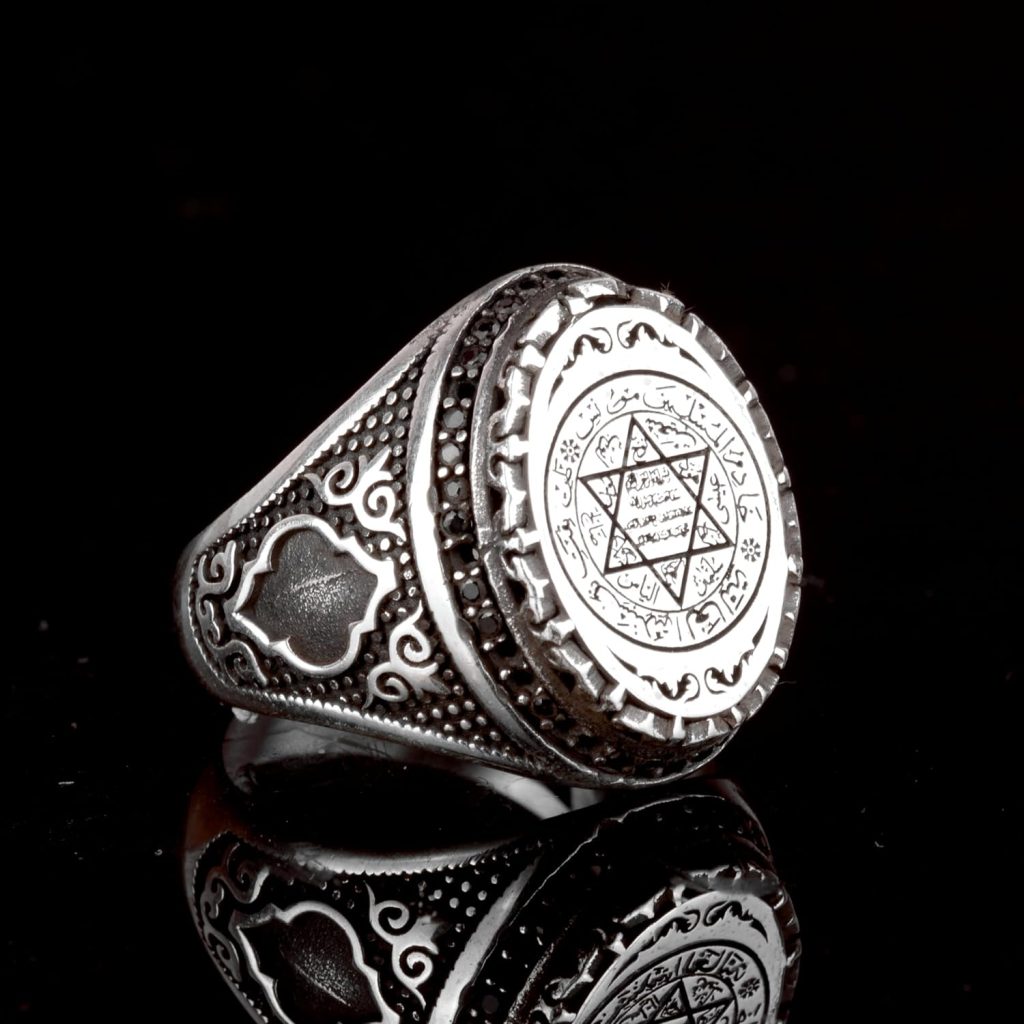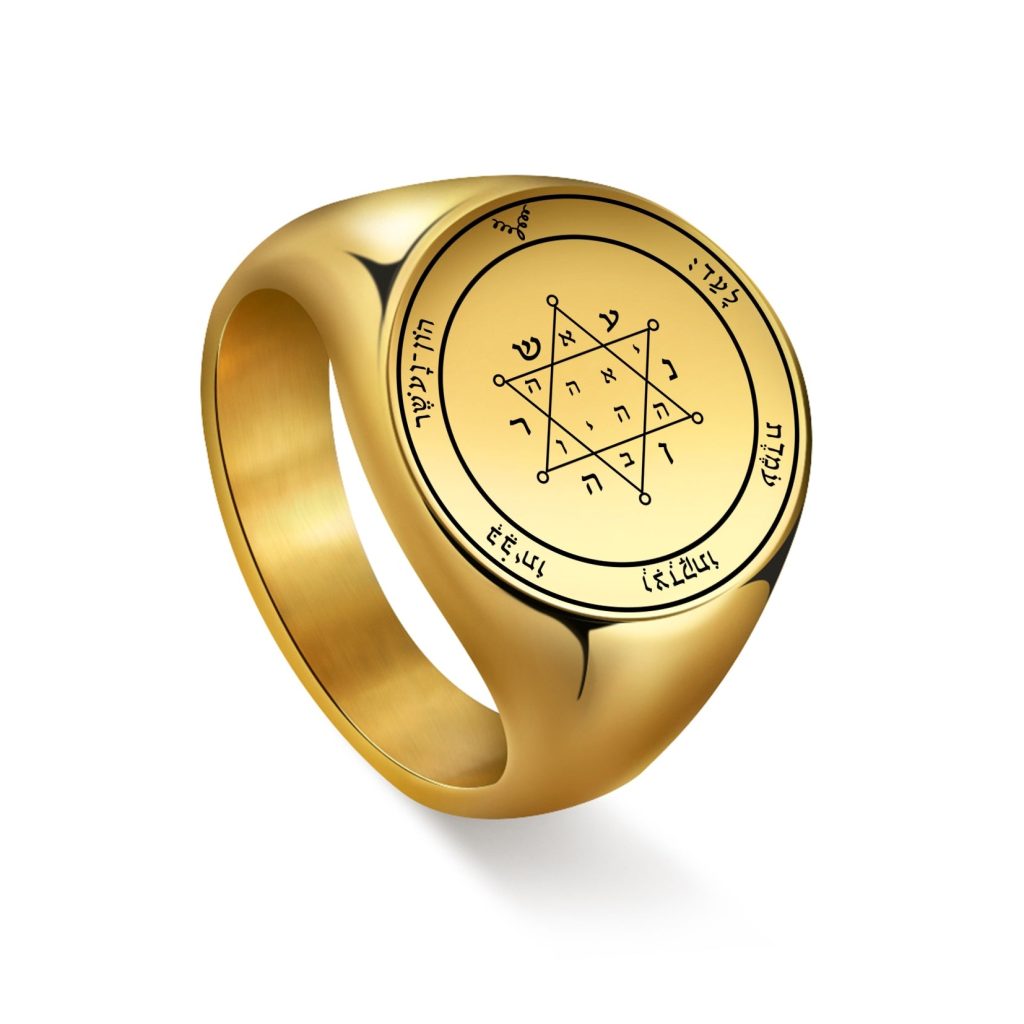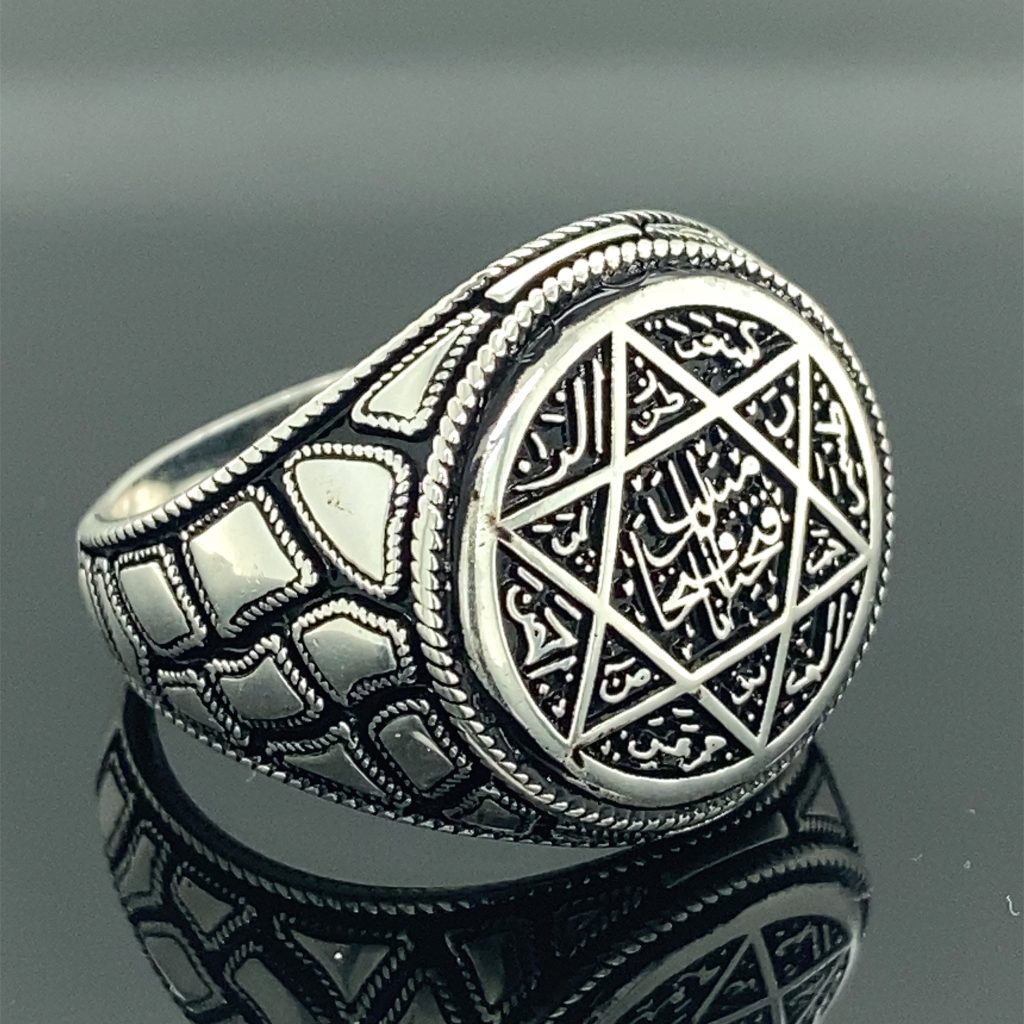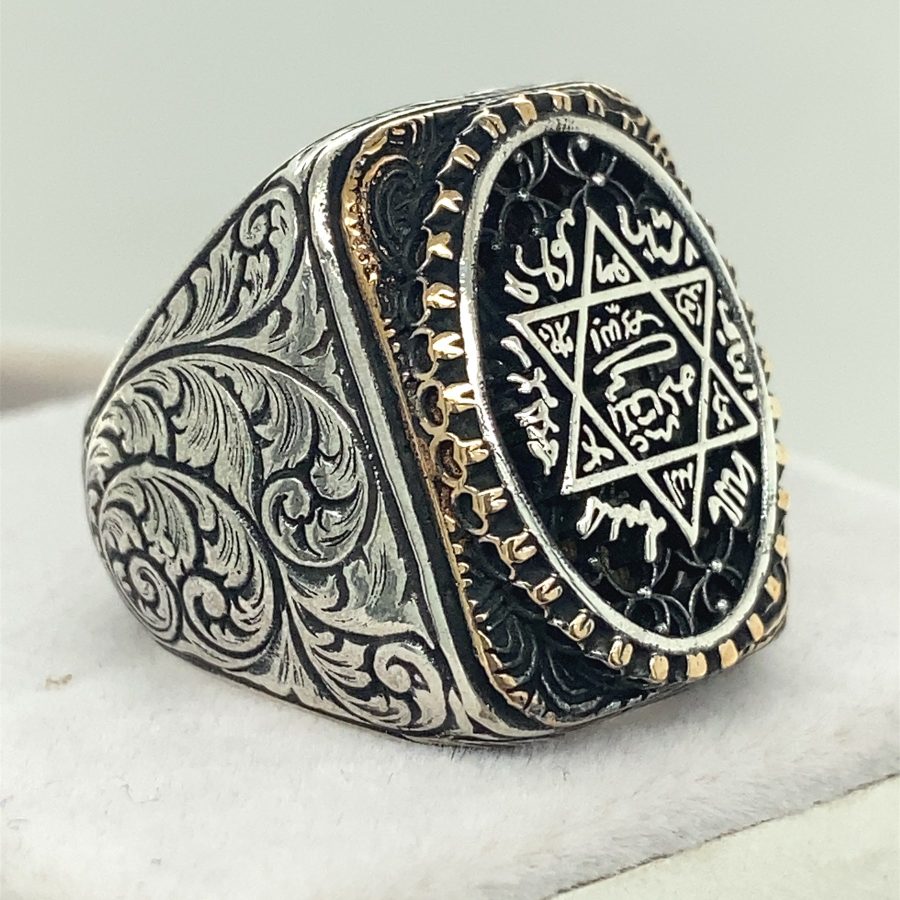Introduction
Ring of solomon, a name steeped in legend and mystery, captivates the imagination with its allure of ancient wisdom and supernatural power. This enigmatic artifact, often associated with King Solomon of biblical fame, has intrigued historians, scholars, and enthusiasts for centuries. To unravel the mysteries surrounding the Ring of Solomon is to delve into a rich tapestry of myth, history, and cultural significance.

The Origins and Historical Context
The Ring of Solomon is most famously linked to the biblical King Solomon, the son of King David and ruler of Israel renowned for his wisdom. According to Jewish, Christian, and Islamic traditions, Solomon’s ring was a powerful artifact that granted him dominion over both humans and supernatural beings. This artifact is often depicted as a signet ring inscribed with mystical symbols, thought to be imbued with the divine wisdom of God.
The origins of the Ring of Solomon are shrouded in legend. While its exact historical basis remains elusive, various accounts suggest that Solomon used the ring to control demons, speak with animals, and make profound judgments. The ring’s reputed abilities are deeply rooted in the lore of the ancient Near East, blending elements of mysticism, theology, and folklore.
Symbolism and Mystical Significance
The Ring of Solomon is emblematic of several significant themes:
- Wisdom and Authority: Solomon’s wisdom is a central theme in the Bible, and the ring is often seen as a symbol of his unparalleled discernment and authority. It represents the ability to make wise and just decisions, transcending ordinary human capabilities.
- Divine Connection: In many traditions, the ring is believed to be a conduit for divine power. It symbolizes the connection between the earthly and the divine, highlighting Solomon’s role as a mediator between God and humankind.
- Supernatural Control: The ring is reputed to have granted Solomon control over supernatural forces, including jinn (spirits) and demons. This aspect of the ring underscores its role in bridging the gap between the natural and supernatural realms.
Historical and Cultural Interpretations
The historical authenticity of the Ring of Solomon is debated among scholars. Some view it as a symbolic representation rather than a literal object. The ring’s prominence in various cultural traditions adds to its mystique:
- Jewish Tradition: In Jewish lore, the ring is often associated with the Seal of Solomon, a hexagram symbolizing divine protection and power. The Seal of Solomon is a significant symbol in Jewish mysticism and is believed to have been engraved on Solomon’s ring.
- Islamic Tradition: In Islamic tradition, Solomon (Sulaiman) is a prophet and king who possesses a ring with extraordinary powers. The Quran mentions Solomon’s ability to control jinn and speak the language of birds, which is often attributed to his ring.
- Western Esotericism: The Ring of Solomon has also found its place in Western esoteric traditions. Alchemists and occultists have historically revered the ring as a potent magical tool. Its symbolisms and attributes are often explored in the context of mystical practices and esoteric teachings.
The Ring in Literature and Popular Culture
The Ring of Solomon has captured the imagination of authors and creators throughout history. Its mystique and power have made it a compelling subject in literature, film, and popular culture:
- Literary Works: Various historical and fictional accounts have featured the Ring of Solomon. From medieval manuscripts to modern fantasy novels, the ring’s mythical properties continue to inspire writers and storytellers.
- Film and Television: The ring has appeared in numerous films and television series, often depicted as a powerful relic with the ability to influence the course of events. These portrayals contribute to the ongoing fascination with the artifact and its legendary powers.
- Video Games: The Ring of Solomon has also made its way into the realm of video games, where its mystical attributes are explor in interactive narratives. Gamers encounter the ring as a tool for solving puzzles and navigating fantastical worlds.
The Quest for the Ring
The allure of the Ring of Solomon has led many to search for its physical manifestation. Archaeological and historical searches for the ring or similar artifacts have been conduct, though none have produced definitive results. The search for the ring often symbolizes a broader quest for understanding ancient wisdom and uncovering lost knowledge.

Biblical and Religious Origins
The primary source mentioning the Ring of Solomon is the Hebrew Bible or Old Testament, particularly in the books of Kings and Chronicles. However, it is in later Jewish mystical traditions, primarily Kabbalah, and various apocryphal texts such as the Testament of Solomon, where the ring’s truly unfolds. According to these accounts, God bestowed upon Solomon a magical signet ring, often adorned with the Seal of Solomon, featuring a six-pointed star (later associated with the Star of David) or other mystical symbols. This ring granted Solomon the power to command demons, control the elements, and communicate with animals, making him a ruler unparalleled in wisdom and might.
The Seal of Solomon and Its Symbolism
The Seal of Solomon, prominently featured on the ring, holds profound symbolic importance. It represents divine wisdom and protection, embodying the harmony and balance inherent in creation. The hexagram, though later associated with Judaism, has roots in earlier astrological and alchemical symbolism. Reflecting the universe’s order and the interconnectedness of all things under God. As such, the ring symbolizes Solomon’s divine right to rule and his ability to maintain cosmic order within his kingdom.
Influence on Magic and Occultism
Beyond its biblical roots, the Ring of Solomon became a central motif in medieval and Renaissance magic and occultism. Grimoires like the Clavicula Salomonis (Key of Solomon) detailed rituals and spells invoking Solomon’s name and the power of his ring for purposes ranging from summoning spirits to healing and protection.
Cultural Impact and Folklore
The legend of the Ring of Solomon transcended geographical boundaries, influencing Islamic, Arabic, and European folklore. In Islamic tradition. Solomon (Sulaiman in Arabic) is revere as a prophet and a king who ruled over both humans and jinn (spirits). Using his ring to command obedience. Stories of his encounters with these supernatural beings abound in One Thousand and One Nights and other Middle Eastern literature. Similarly, European legends incorporated Solomon’s ring into tales of knights and wizards. Further solidifying its status as an iconic artifact of magical power.
Historical Significance and Interpretations
Beyond its fantastical attributes, the Ring of Solomon serves as a lens through which to view the historical context of its time. It reflects the ancient world’s fascination with magic and divinity, intertwined with the emerging monotheistic belief systems. Furthermore, the mythos surrounding the ring underscores humanity’s perennial quest for knowledge. Control over nature, and the desire for divine guidance and protection.
Modern Interpretations and Legacy
In modern times, the Ring of Solomon continues to inspire art, literature, and popular culture. It appears in novels, movies, and video games, often serving as a plot device imbued with great power or wisdom. Moreover, its symbolism resonates with contemporary discussions on the intersection of science, spirituality. And the human quest for understanding the universe.

Conclusion
The Ring of Solomon remains an enduring symbol of power, wisdom, and mystical prowess. Whether viewed as a literal artifact or a powerful symbol, it continues to inspire awe and curiosity. Inviting us to explore the depths of ancient mysteries and the timeless quest for wisdom.
